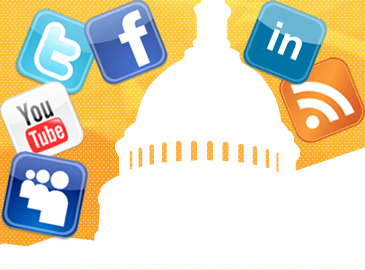Social Media Plays Role In Policy Making
By Kyle Aevermann In Studies & Stats
Of the 396 senior staff members from both the U.S. and Europe whom were surveyed, 96 percent said they often use online resources for public policy research. Fifty-four percent of the staffers had also reported learning of policy issues online for the very first time, while nearly one in five actually changed a policy position based on what they had learned online.
When it comes to using social media and Web 2.0 the survey was broken down into 6 different regularly used social media platforms. 60 percent of the staff had said they access Facebook for personal use, with 28 percent saying they use the site to communicate with colleagues. Roughly one in five use Facebook to reach out to constituents. Facebook is not just the most used social networking site in the world, but among the staff members. The other social media sites, YouTube, Twitter, LinkedIn, MySpace and personal blogs, also saw a number of users from within the staff community. Surprisingly, YouTube was rated the highest social media tool in order to do research on policies while 52 percent frequently video blogged.
Overall 39% had said they use social media sites on a regular basis for research and to hear policy opinions from the public.
“When it comes to policy development and public affairs, we’re seeing a digital about-face as staffers and elected officials move from face time to Facebook and other social media to research and communicate on critical issues,” said Jere Sullivan, Vice Chairman of Global Public Affairs, Edelman. “Traditional communications and advocacy channels remain important and effective in all countries, but the growing influence of online cannot be overlooked and needs to be included in the mix of tools for communicating about and forming consensus on important policy issues.”


No Comment